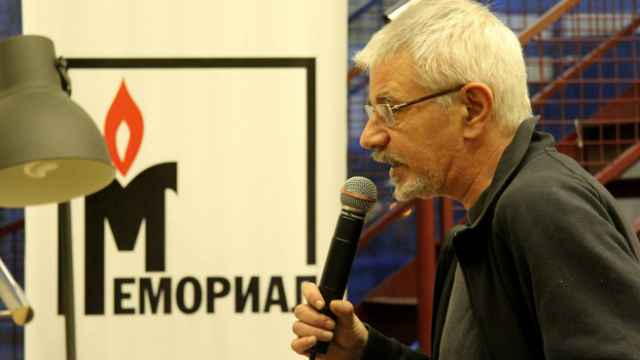In Soviet times, jazz music was distrusted and reviled as a subversive means of American influence, and it looks like the distrust of the century-old genre still lingers in the corridors of Russian power.
A state culture watchdog banned a Russian jazz band from playing at a book fair in Hungary because of the style of music they play, musician Naum "Dry Ice" Bleek said on his Facebook page.
"The Federal Mass Media Inspection Service was wary about jazz accompaniment, … it being American music," Bleek cited an unnamed organizer on the Russian side as saying.
"I know it sounds insane, but you've got to defer to them," the organizer was cited by Bleek on Monday as saying.
The musicians were asked to play something Russian instead, but declined, Bleek said.
Bleek was tentatively booked to perform with the Denis Galushko Trio as a part of the Russian program at the Gaudeamus Book Fair in Budapest in November.
The Yekaterinburg-based rapper delivers his own verse alongside famous Russian poetry, such as that of Alexander Pushkin and Vladimir Mayakovsky, against a backdrop of jazz.
Neither the organizers nor the state watchdog had commented on the incident by press time Wednesday.
The Russian government has been accused recently of ramping up cultural censorship. But the accusations have so far been mostly limited to the film industry and — to a lesser degree — modern art and theater.
Jazz was even tolerated during the Stalin era but came under fire as a form of "ideological sabotage" with the outbreak of Cold War. A popular mid-century slogan went: "Today you play jazz; tomorrow you betray the fatherland."
Nevertheless, Russia has sported a solid jazz scene since at least the 1950s.
President Vladimir Putin himself displayed a soft spot for jazz standards in 2010, when he belted out the classic "Blueberry Hill" at a charity event.
Other Russian leaders, meanwhile, have shown a fondness for arguably even more subversive Western genres: Prime Minister Dmitry Medvedev, for example, admitted a love of Deep Purple, Black Sabbath and even Linkin Park, his son's favorite.
Contact the author at [email protected]
A Message from The Moscow Times:
Dear readers,
We are facing unprecedented challenges. Russia's Prosecutor General's Office has designated The Moscow Times as an "undesirable" organization, criminalizing our work and putting our staff at risk of prosecution. This follows our earlier unjust labeling as a "foreign agent."
These actions are direct attempts to silence independent journalism in Russia. The authorities claim our work "discredits the decisions of the Russian leadership." We see things differently: we strive to provide accurate, unbiased reporting on Russia.
We, the journalists of The Moscow Times, refuse to be silenced. But to continue our work, we need your help.
Your support, no matter how small, makes a world of difference. If you can, please support us monthly starting from just $2. It's quick to set up, and every contribution makes a significant impact.
By supporting The Moscow Times, you're defending open, independent journalism in the face of repression. Thank you for standing with us.
Remind me later.






